Sweet Home Chicago welcomed LeadingAge and 5,600+ aging service leaders and practitioners from around the world for four days of can’t-miss education and inspiration.
From acclaimed authors and innovative thinkers to the all-new E2 (Experience Expo) and unique experiences, this year’s Annual Meeting had it all and more. Read on for the top highlights.
KEYNOTE MOMENTS
LeadingAge Board Chair Mike King welcomed the group and noted, “working for the greater good is why we’re all here” before he introduced LeadingAge’s President and CEO Katie Smith Sloan. She reiterated new opportunities to better serve an aging America and challenged the audience to flex their imagination muscles—understanding and acting on what matters to advocate for the greater good.
“We will not let best practices blind us to next practices” – Katie Smith Sloan
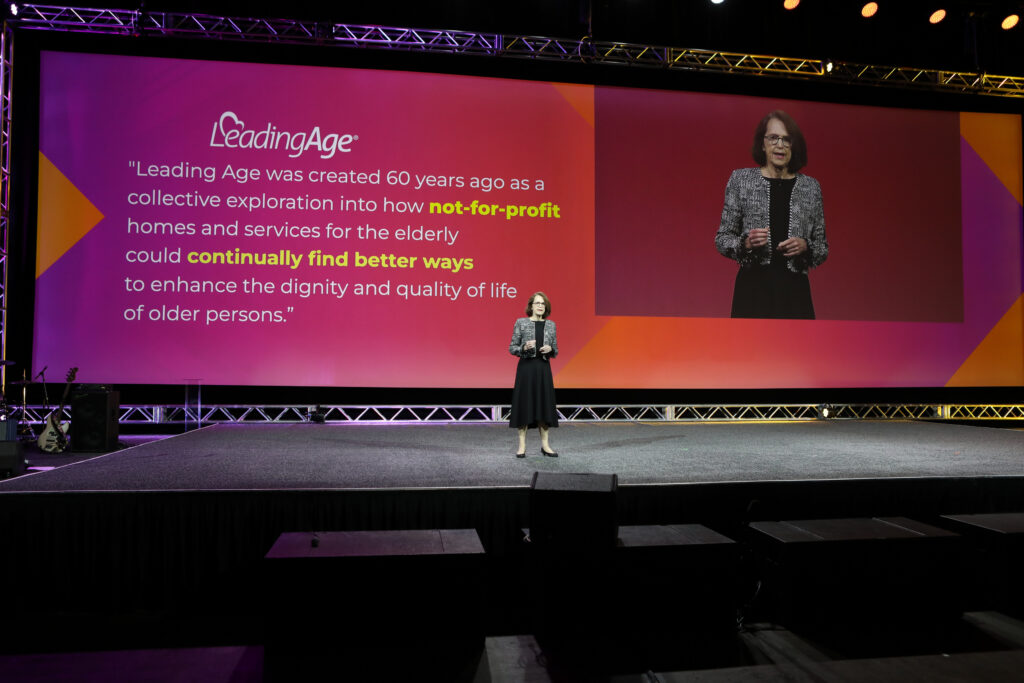
Katie also called on members to make their voices heard about the recently proposed minimum staffing standards for nursing homes. More than 900 messages were sent to Congress asking them to ensure CMS Gets Nursing Home Staffing Ratios Right.
After a stirring mission moment with the Oaknotes Choir from the Oaknoll Community in Iowa City, IA, Arthur C. Brooks, Harvard professor, best-selling author, and columnist with The Atlantic, challenged the audience to reprioritize the traditional definition of happiness.
“We don’t get satisfaction by adding to our lives. We get it by chipping away.” – Arthur C. Brooks
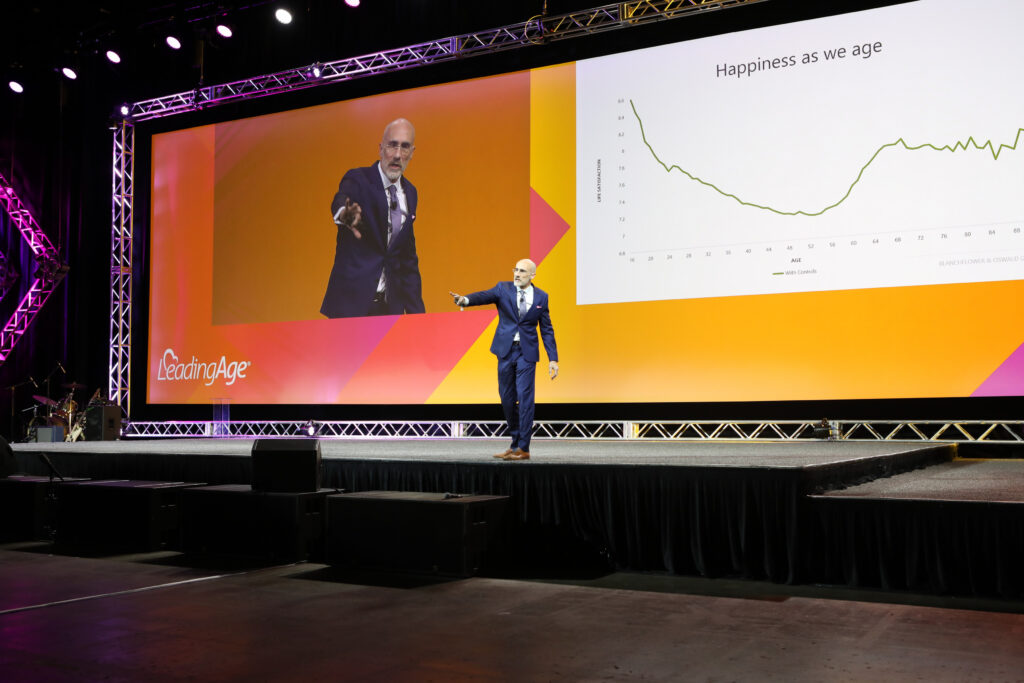
During the Monday general session, LeadingAge also recognized and celebrated the graduating cohort of the 2023 LeadingAge Leadership Academy. Fifty-three LeadingAge members endured and enjoyed the year-long Academy experience that was capped off with a special performance of A Million Dreams by Fellow Kate Eagler, Home Care Director at Arbor Acres Retirement Community.
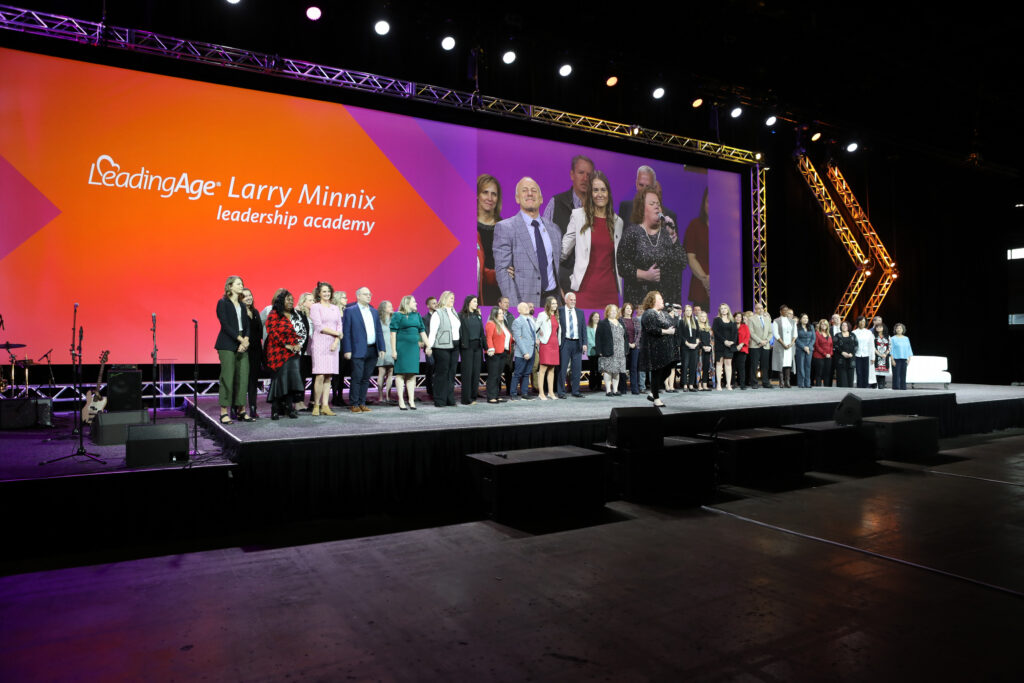
On day three, Roberto Muñiz, president and CEO of Parker Health Group, was welcomed as the new LeadingAge Board Chair and shared his personal story that brought him into the aging services sector.
“We are all here because someone invested in us. They believed in us and taught us to believe in ourselves. Now, it’s our turn to pay it forward—to invest in others.” – Roberto Muñiz
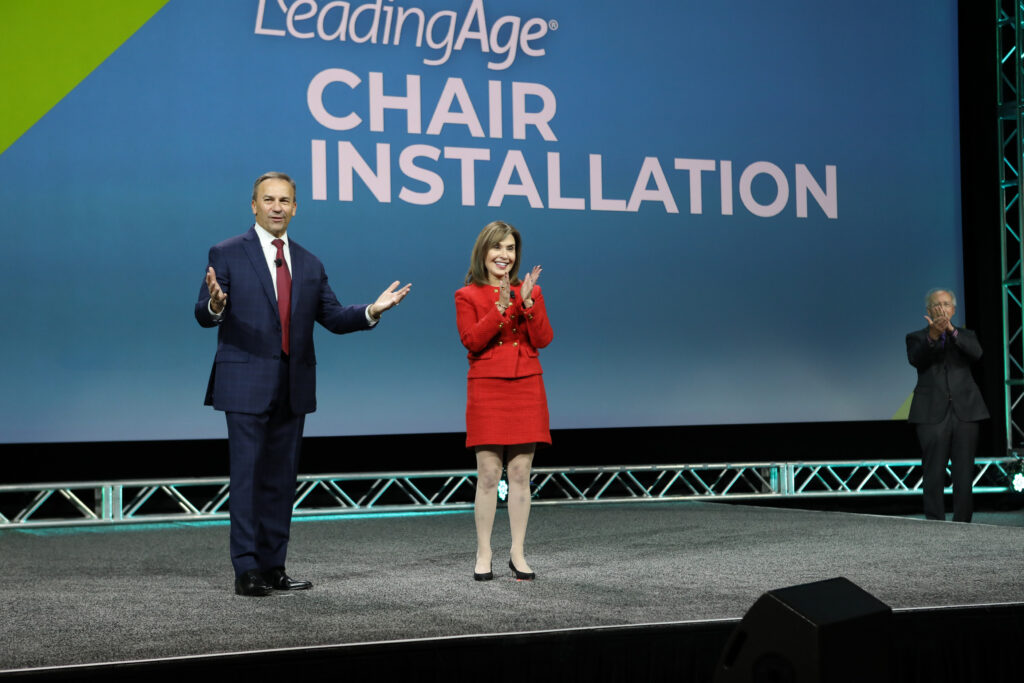
Closing out the final keynote session, Karen Walrond, Radiant Rebellion author, leadership coach, photographer, and leader at the Brené Brown Education and Research Group, invited the audience to redefine activism, purpose, and joy.
“We fight ageism by reckoning with our perception of our own aging. In a world that capitalizes on our despair and disillusionment, joy is the ultimate act of resistance.” – Karen Walrond
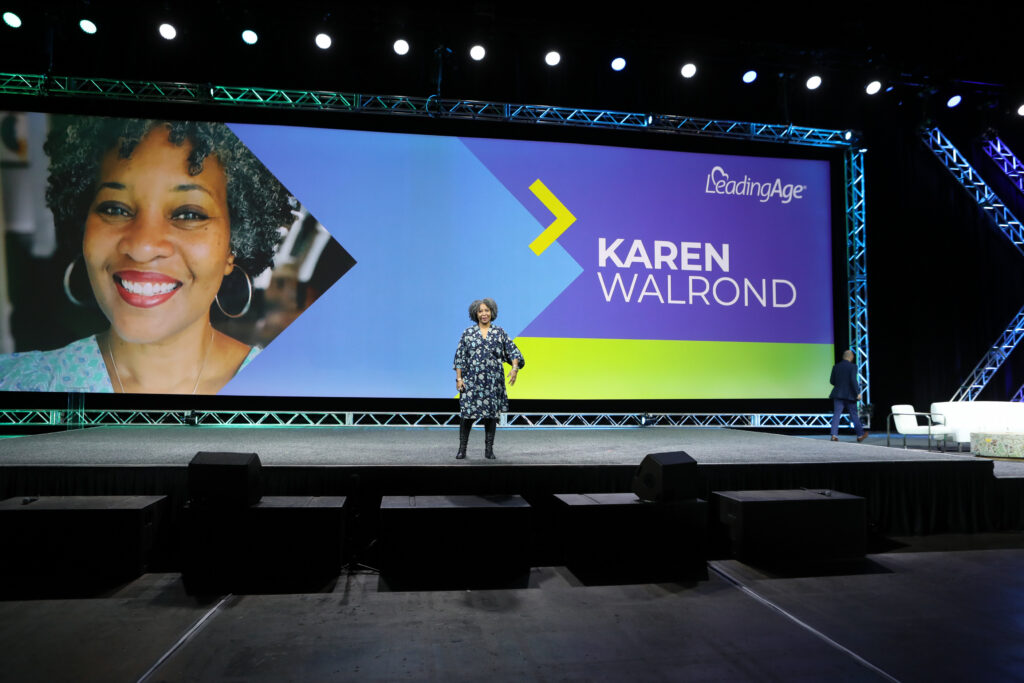
EXPERT-LED EDUCATION
The education team and Annual Meeting Planning Committee spent months curating a top-notch agenda featuring topics across ten targeted tracks aligned with the issues and trends changing the aging services field.
With more than 150 breakout sessions, Annual Meeting attendees had numerous opportunities to dive deeper into practice areas and discover actionable ideas to apply immediately, from finding and motivating staff and better managing boards to improving financial performance and new uses of technology.
LeadingAge Annual Meeting attendees devoured the learning opportunities in Chicago. You can access the rich educational offerings we provide year-round.
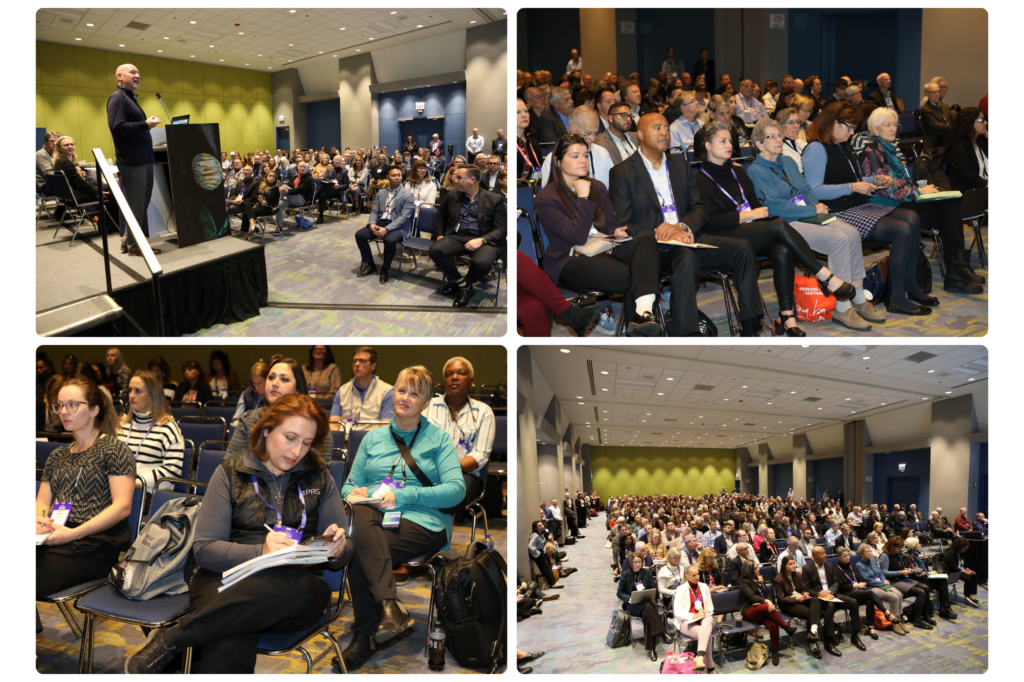
CONFERENCE HAPPENINGS & E2
This year, the largest expo in aging services was revamped with education in mind. Two days of E2 opened with the Oaknotes Choir cheering on thousands of attendees who explored solutions in a new format.
E2 was arranged around seven learning communities that correlated to seven education tracks. The space was also filled with hands-on discovery moments, collaboration activities, shared learning pods, and unexpected sources of inspiration.
It’s not too early to start thinking about next year’s Expo! Businesses can reach out now to talk with our partnership team about reserving the best opportunities for 2024.
Networking

Mission Moments & More
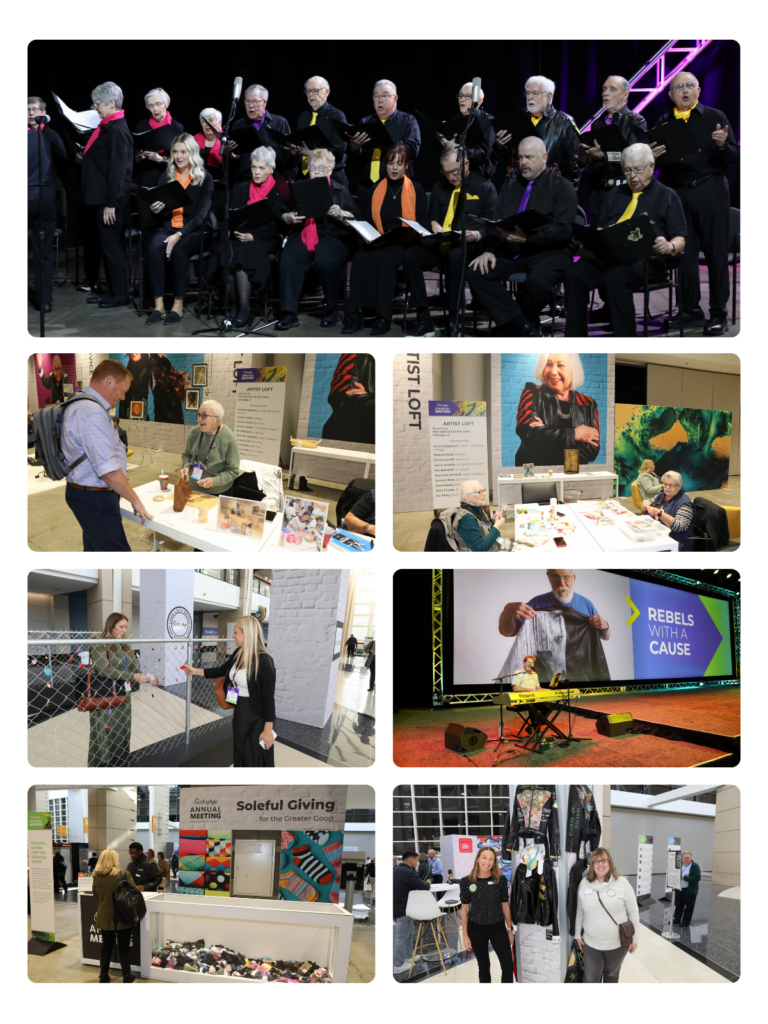
Collaboration Activities
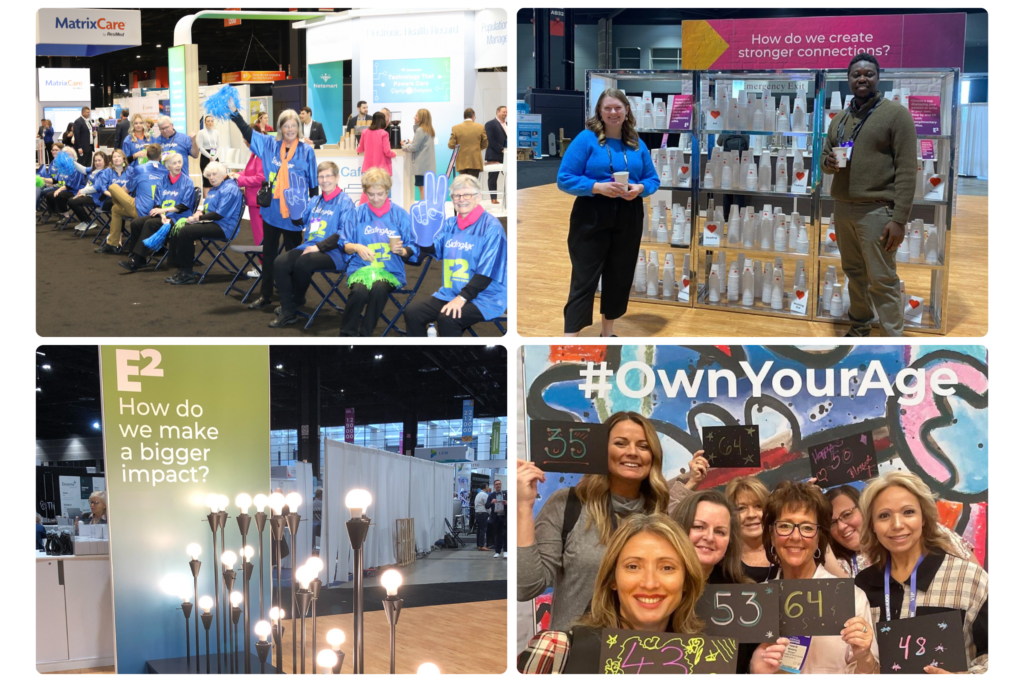
THANK YOU
The success of the LeadingAge Annual Meeting would not be possible without all our attendees, speakers, volunteers, and partners who took the time to join us in Chicago. And a special thank you and shout out to our 2023 Sponsors!

From local resident art placed throughout the event, the hand-painted Rebels With A Cause leather jackets silent auction benefiting the Larry Minnix Leadership Development Fund, the energy of E2, the thousands of handshakes and hugs exchanged in the halls of McCormick Place, and the thought-provoking education sessions, the LeadingAge Annual Meeting is truly an unmatched experience for those in the aging services sector.
Save the dates and be the first to hear about 2024 LeadingAge events by subscribing to our email list.
2024 Leadership Summit | April 15–17, 2024 | Washington, DC
2024 Annual Meeting | October 27–30, 2024 | Nashville, TN
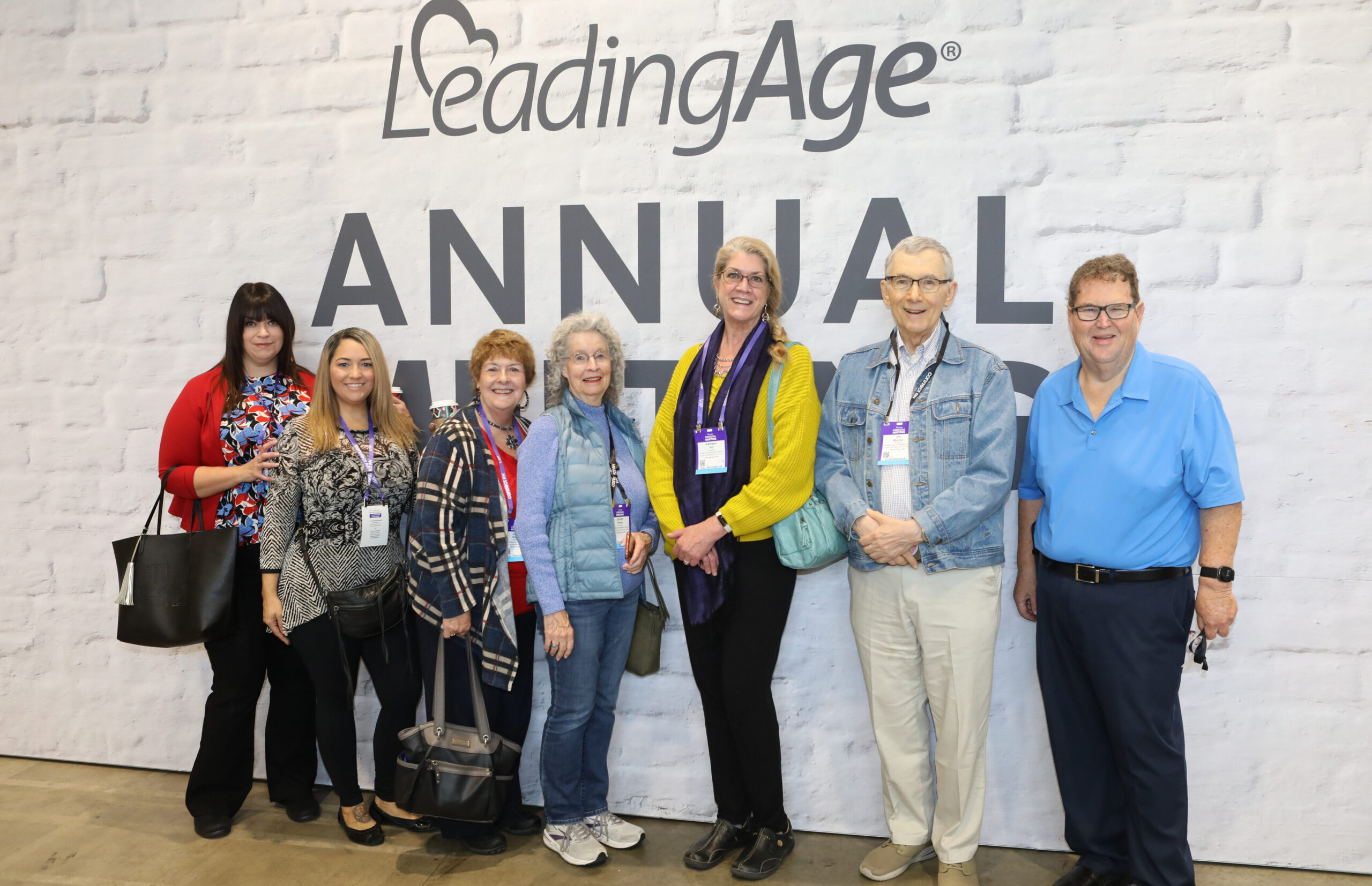
 Budget Reconciliation 2025
Budget Reconciliation 2025












